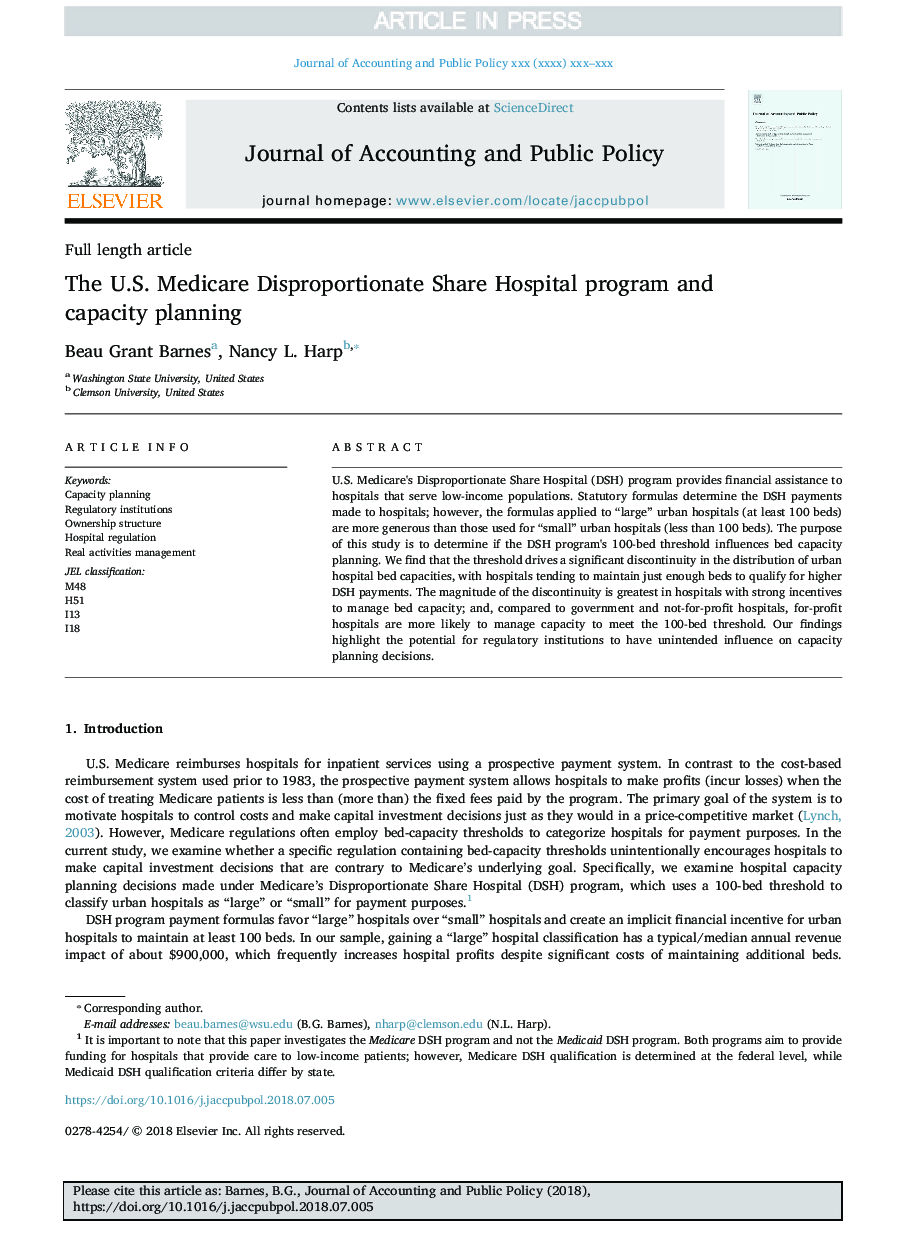| Article ID | Journal | Published Year | Pages | File Type |
|---|---|---|---|---|
| 8942411 | Journal of Accounting and Public Policy | 2018 | 17 Pages |
Abstract
U.S. Medicare's Disproportionate Share Hospital (DSH) program provides financial assistance to hospitals that serve low-income populations. Statutory formulas determine the DSH payments made to hospitals; however, the formulas applied to “large” urban hospitals (at least 100 beds) are more generous than those used for “small” urban hospitals (less than 100 beds). The purpose of this study is to determine if the DSH program's 100-bed threshold influences bed capacity planning. We find that the threshold drives a significant discontinuity in the distribution of urban hospital bed capacities, with hospitals tending to maintain just enough beds to qualify for higher DSH payments. The magnitude of the discontinuity is greatest in hospitals with strong incentives to manage bed capacity; and, compared to government and not-for-profit hospitals, for-profit hospitals are more likely to manage capacity to meet the 100-bed threshold. Our findings highlight the potential for regulatory institutions to have unintended influence on capacity planning decisions.
Related Topics
Social Sciences and Humanities
Business, Management and Accounting
Accounting
Authors
Beau Grant Barnes, Nancy L. Harp,
